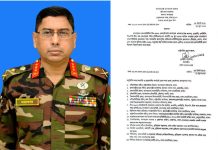In an era dominated by the relentless flow of information and the pervasive threat of disinformation, a recent Washington Post report has thrust into the spotlight an organization known as the Disinfo Lab. The report, which alleges connections between the Disinfo Lab and a lieutenant colonel (Lt Col) in the Research and Analysis Wing (RAW), the external intelligence agency of India, opens Pandora’s box of questions surrounding the role of intelligence agencies in shaping global narratives. As we embark on a journey to unravel the intricacies of this unfolding saga, we find ourselves at the intersection of covert operations, international influence, and the delicate balance between national security and the free flow of information.
The Disinfo Lab, active since 2020, claims to be an independent entity committed to unbiased research. However, the investigative report by the Washington Post challenges this narrative, suggesting a nexus between the Lab and Lt Col Dibya Satpathy, an intelligence officer allegedly orchestrating the activities of the organization. The core of the allegations revolves around the Lab’s dissemination of information that combines factual research with unverified claims. The resulting narrative paints a vivid picture of a global conspiracy against India, with US government figures, researchers, and humanitarian groups purportedly at the epicenter, orchestrated by Islamic groups and the ubiquitous George Soros.
The intrigue deepens as we explore the alleged covert operations orchestrated by Satpathy, who reportedly operated under aliases, including the enigmatic “Shakti.” Engaging with Western journalists and commentators, the objective was to shape international perceptions favorably towards India. The use of fake identities raises ethical questions about the boundaries of such covert operations, especially when the goal is to seek favorable media coverage and promote national interests.
The Disinfo Lab’s influence, however, extends far beyond the borders of the Indian subcontinent. Proponents of the Lab’s narrative, including pro-Modi influencers, amplify its content on social media platforms. This not only grants the Lab the ability to shape global discussions but also underscores the evolving nature of information warfare, where online networks play a pivotal role in promoting foreign policy positions.
The Lab’s denial of any association with government or intelligence agencies sharply contrasts with the assertions of the Washington Post. The Lab presents itself as a product of individuals who coalesced during an anti-corruption political movement, vehemently rejecting any suggestion of state sponsorship. The Post, however, relies on anonymous sources to portray a different reality, leaving the audience grappling with the challenge of discerning truth from fiction.
In dismissing the Washington Post article as a “barely disguised revenge piece,” the Disinfo Lab further muddies the waters surrounding its true affiliations. The organization’s insistence on being an independent entity raises questions about transparency and accountability, especially when its reports have allegedly been cited by Indian officials, adding a veneer of credibility to its claims.
The potential involvement of a RAW officer in shaping international narratives raises profound concerns about the ethical boundaries of intelligence activities. If proven true, it suggests a departure from conventional intelligence operations focused solely on national security. Sumit Ganguly, an expert on Indian diplomacy, suggests that if Indian intelligence is indeed “besmirching American critics and civil society organizations,” it would be reminiscent of tactics employed during the Cold War, representing a troubling attitude toward dissent, whether domestic or abroad.
As we reflect on the Disinfo Lab controversy, it prompts a broader examination of the role of intelligence agencies in information warfare. The blurred lines between independent entities and state-sponsored operations underscore the challenges of navigating the complex world of global information dissemination. In an age where technology evolves at an unprecedented pace, understanding and addressing the multifaceted challenges posed by disinformation campaigns become imperative for maintaining a transparent and informed global community.
The controversy serves as a poignant reminder that the battle for truth and narrative supremacy is no longer confined within national borders. The Disinfo Lab saga forces us to confront the reality that information can be weaponized to achieve geopolitical goals, and discernment and vigilance are crucial in the face of narratives that shape our perceptions of the world. As we strive to untangle the web of deception, one thing remains clear — the need for a global community that values transparency, integrity, and the free exchange of ideas. Only then can we hope to navigate the complex landscape of information warfare with clarity and purpose.
Bappy Rahman is a development practitioner






